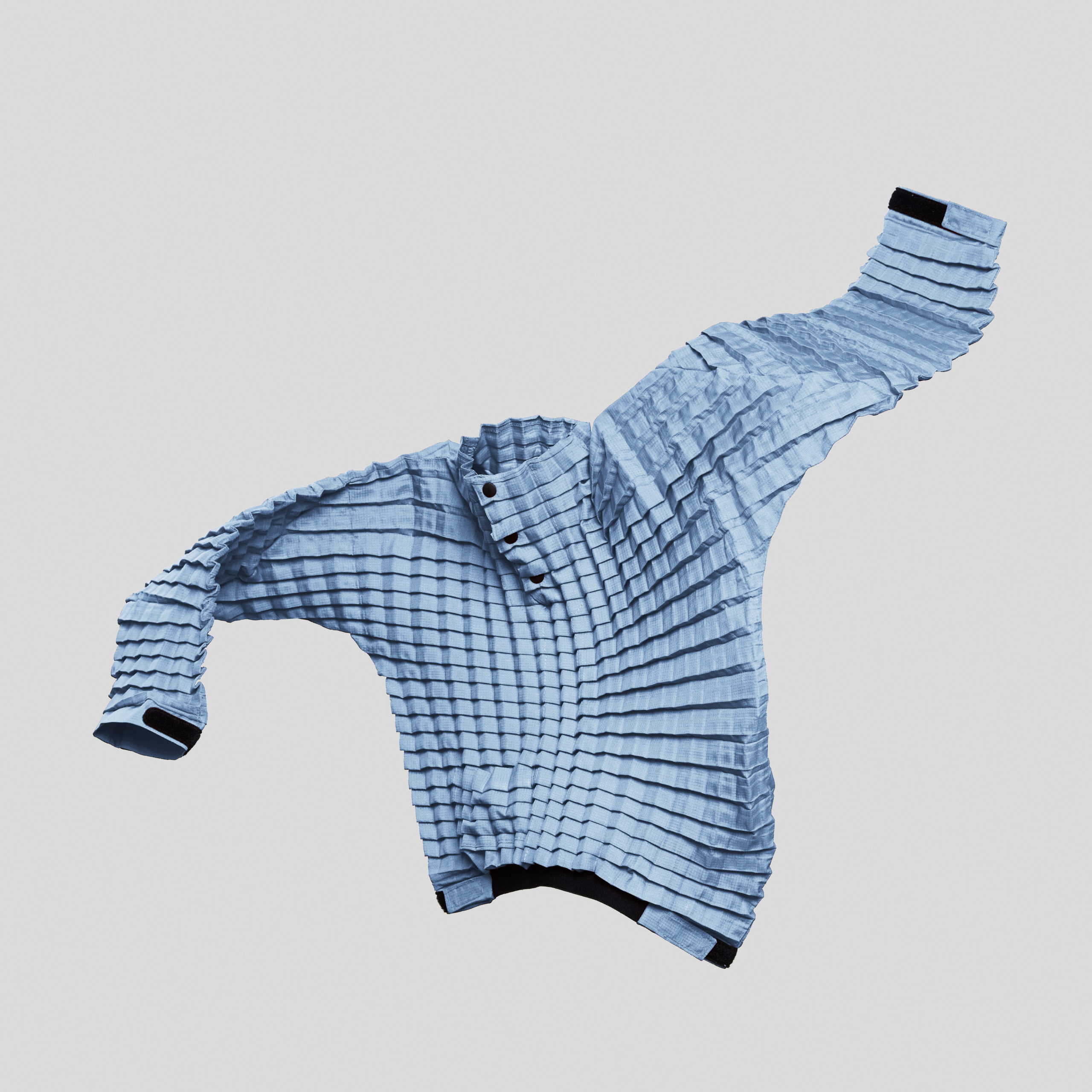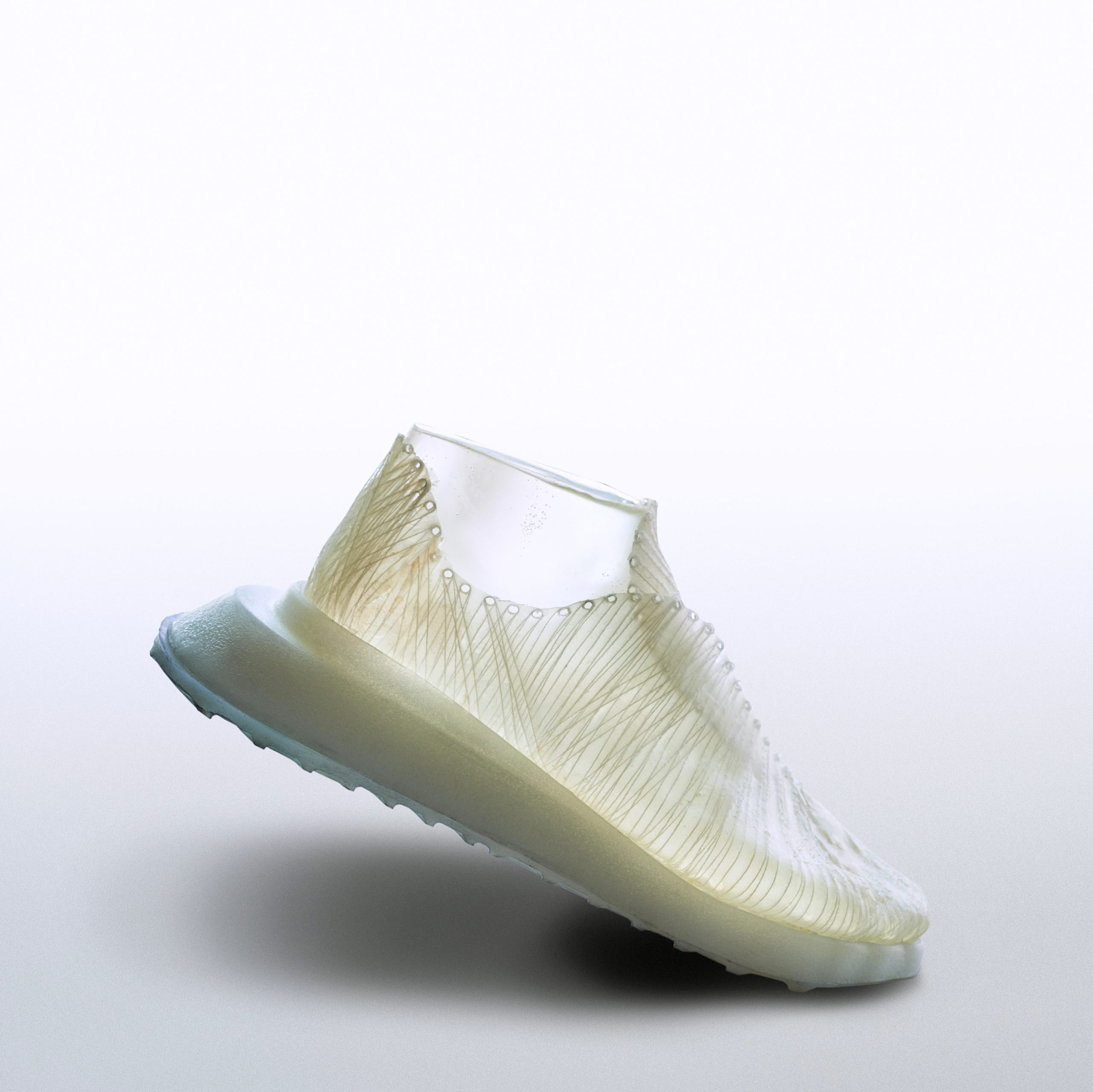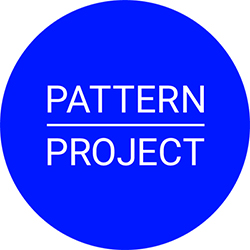
The Fashion District, in collaboration with the Fashion Innovation Agency, is delighted to announce the shortlist for Manufacturing Futures: Fashion District Innovation Challenge Prize 2021!
The shortlist was selected from a host of impressive and creative applications by our esteemed panel of industry experts. This year’s cohort is comprised of ten start-ups who showed true innovation and the potential to change the future of manufacturing.
“Manufacturing Futures 2021 has unearthed some truly cutting edge start-ups that are applying technology and science to tackle the urgent environmental needs of the fashion industry. We have a real opportunity to collaborate, both within the industry and with other sectors, to bring on the brightest and most impactful innovations to reshape the industry.”
Helen Lax, Director, Fashion District.

Petit Pli
“We’re proud to be supporting technological innovations that are solving the manufacturing challenges facing the fashion industry today. Engineering is behind everything we touch, including the clothes we wear, so it’s important that we create interdisciplinary connections between technologists and engineers, and fashion creatives and manufacturers.”
Danielle George, MBE, President, IET.
Our shortlisted start-ups are offering a range of solutions that include innovative new materials, effective new software which help brands and customers to make ethical and sustainable choices, as well as fashion tech businesses using nanomaterials to reduce the impact of harmful manufacturing processes.

Modern Synthesis
“It is a privilege to judge Manufacturing Futures 2021 and be part of an initiative that puts science and engineering at its heart. At PANGAIA, we are on a mission to inspire and accelerate an Earth Positive future, and it is amazing to be part of a competition where all of the innovators are striving towards the same shared goal. There are some really ground-breaking technologies within this group and I personally cannot wait to see what the future holds for all of them.”
Craig Smith, Head of Research & Development, PANGAIA.

Treekind™ by Biophilica is a plant-based leather alternative for the fashion industry. It is estimated to be carbon negative, recyclable as green waste, home compostable, non-toxic and completely free of plastic and petrochemicals. With Treekind™ we want to support the transition to local, sustainable manufacturing and consumption.

Clean Ocean Fiber Technology is a textile business that creates new yarn by binding any recycled raw material with natural and bio artificial spun yarn. It reduces the polluting effect of textiles and protects the environment by preventing fibre shedding in clothing, whilst providing greater durability and better circularity.
www.cleanoceanfibertech.com
![]()
ClearChain is a software platform for easy, low-cost, high-value supply chain mapping, compliance auditing and reporting. It enables companies to get answers to the big questions facing them about sustainability, Net Zero and ethical compliance. Its modern, simple user interface eliminates clutter and allows users to map supply chains and conduct compliance audits on one or more of these vendors.

2DTronics by G Square is a textile technology start-up dedicated to producing smart sustainable clothing for the home, for work and for exercise. 2DTronics fabrics are made from composites of nanomaterials with recycled or natural fibres giving enhanced strength, durability and comfort. Garments are also to be embedded with smart sensing functions using graphene conductive inks.

Modern Synthesis is a London based biomaterial start-up connecting the dots between biology, material science and design to craft progressive biomaterials for the fashion industry. The company’s ‘microbial weaving’ process employs microbes to grow a strong, lightweight cellulose-based composite material that is naturally biodegradable and offers unique potential for customization.

Nanofique Limited is working with bio-composites of nanostructured material to degrade the dyes in wastewater, removing the colour and associated harmful effects. They also separate, remove and upgrade the heavy metal ions and salt without producing sludge and recycle the water. Their product is catalytic and biodegradable. The bio element can be grown without the use of irrigation, fertilizer or pesticides.

Nanoloom creates biodegradable fibre from a novel, unique nanomaterial called BioHastalex, which is based on graphene. BioHastalex is extremely strong, light, flexible and durable. It can be made to attract or repel water without additives, doesn’t shed and is scalable. This makes it suitable for numerous applications, and Nanoloom currently focuses on performance apparel.

Pattern Project is a clothing micro-factory, developing machinery and software to enable independent fashion brands, high street retailers or tailoring companies to produce custom-fit clothing in-store and on-demand. The software generates a made-to-measure pattern from customer measurements and sends it to a desktop cutting machine. A ready-to-sew custom-fit garment is then created in as little as 10 minutes.

Petit Pli is a wearable technology company engineering clothes that grow. Trained aeronautical engineer, Ryan Mario Yasin founded Petit Pli in 2017, shortly after gifting clothes to his newborn nephew in Denmark. By the time the clothes arrived they were already too small! Determined to pioneer a new approach to slow fashion he drew inspiration from his background in deployable nano-satellite structures.

Terra Neutra provides innovative services that measure the carbon footprint of a product and allow customers to offset the impact in the shopping cart. Their mission is to create a carbon positive world, empowering people to live more sustainably, raising awareness of climate impact, enabling reduction and offsetting any residual emissions.